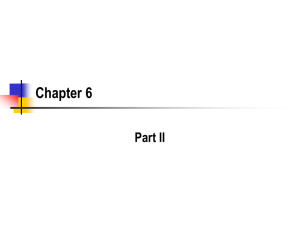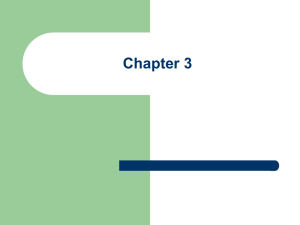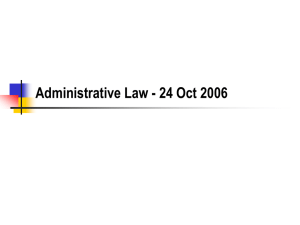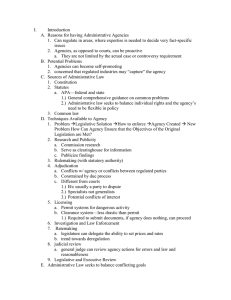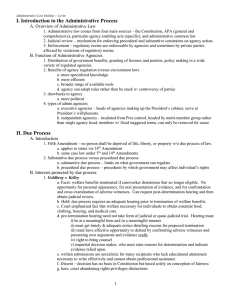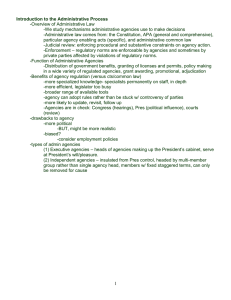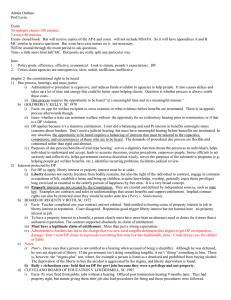Administrative Law Chapter 2 - Part IV
advertisement
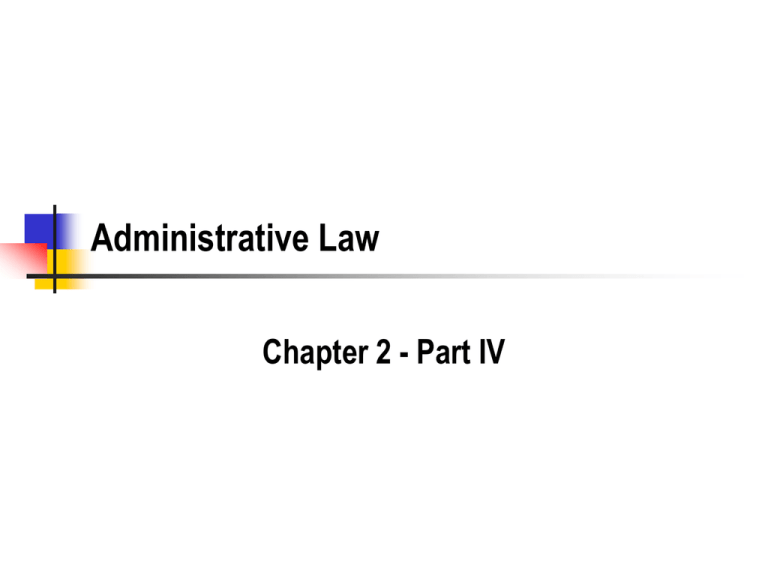
Administrative Law Chapter 2 - Part IV Review of Adjudications Adjudications are like trials They resolve the facts of specific disputes Binding only on the specific parties All of the hearing cases we have read fit this model What if there are no disputed facts? Altenheim German Home v. Turnock, 902 Fed 2nd 582 (Cir 7 1990) Hospital licensing dispute What sort of issues could leave no disputed facts? What is the rationale for a hearing? What would be the result in these cases? Is it an Adjudication at All? If the agency is not determining facts in individual cases, there is no individual right to a hearing Do you get a hearing if you do not like a law passed by the legislature? What are your remedies for statutes you do not like? Rule Making v. Adjudication Rule making is like the legislature You get participation through notice and comment No individual right to participation Thus it is critical to determine whether an agency action is an adjudication or a rule making Londoner v. Denver What did the city do that lead to the case? What was the procedure for determining the charge? Did it depend on a standard rule? Was there a hearing at any point in the charge setting process? Why did the court find that this was an adjudication rather than a rulemaking? Do you think it mattered what kind of property it was? Bi-Metallic Investment Co. v. State Board of Equalization How is this case different from Londoner? What did the plaintiff want? Rulemaking or adjudication and why? Any right to a hearing? Think back to Constitutional law - do taxpayers ever get a hearing to contest tax RATES as opposed to individual assessments? Rules that Only Apply to One Entity You regulate copper smelters in Montana There is only one smelter The state passes a rule setting arsenic levels in the effluent for copper smelters Adjudication or rulemaking? What are the factors?
